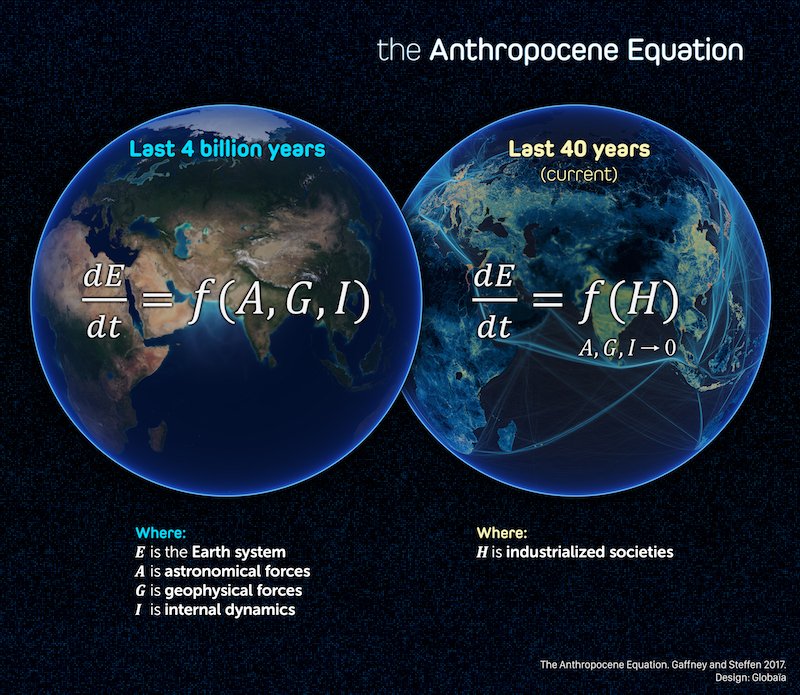
14th February 2017 Human activity is changing the climate 170 times faster than natural processes Humans are causing the climate to change 170 times faster than natural forces, research has found. This study, for the first time, produced a mathematical equation to describe the global impact of human activity on the Earth system, known as the Anthropocene equation.
"Over the past 7,000 years, the primary forces driving change have been astronomical – changes in solar intensity, and subtle changes in orbital parameters, along with a few volcanoes. They have driven a rate of change of 0.01°C per century," said Professor Will Steffen from the Australian National University (ANU), one of the study authors. "Human-caused greenhouse gas emissions over the past 45 years have increased the rate of temperature rise to 1.7°C per century, dwarfing the natural background rate." His paper, co-authored by Owen Gaffney from the Stockholm Resilience Centre, is published in The Anthropocene Review. It examines our planet as a single complex system and assesses the impact of human activities on the system's trajectory. Under current astronomical forcing, and if atmospheric levels of CO2 had remained at their pre-industrial level of 280 parts per million (ppm), Holocene-like conditions could have been expected for another 50,000 years, the paper says. "We are not saying the astronomical forces of our Solar System or geological processes have disappeared – but in terms of their impact in such a short period of time, they are now negligible compared with our own influence," said Steffen. "Crystallising this evidence in the form of a simple equation gives the current situation a clarity that the wealth of data often dilutes. It also places the contemporary human impact in the context of the great forces of nature that have driven Earth system dynamics over billions of years. The human magnitude of climate change looks more like a meteorite strike than a gradual change." In addition to CO2, the researchers looked at a range of other impacts. For example, the release of methane (an even more powerful greenhouse gas) has occurred 285 times faster than the natural background rate, leading to a 150% increase in atmospheric concentration since 1750. Humans have also disrupted the nitrogen cycle, now undergoing its largest and most rapid change in 2.5 billion years. Before the Industrial Revolution, only about 5% of land cover was intensively used, but this has now expanded to 55%. The falling pH level of the oceans is yet another concern – they are currently acidifying at their fastest rate since the carboniferous period, 300 million years ago. Biodiversity is collapsing, with extinction rates up to 100 times faster than normal. Humanity still has a chance to prevent catastrophic climate change, according to Steffen, but time is rapidly running out: "The global economy can function equally well with zero emissions. Research shows we can feed nine billion people – the projected world population by 2050 – and reduce greenhouse gas emissions at the same time." ---
Comments »
|







